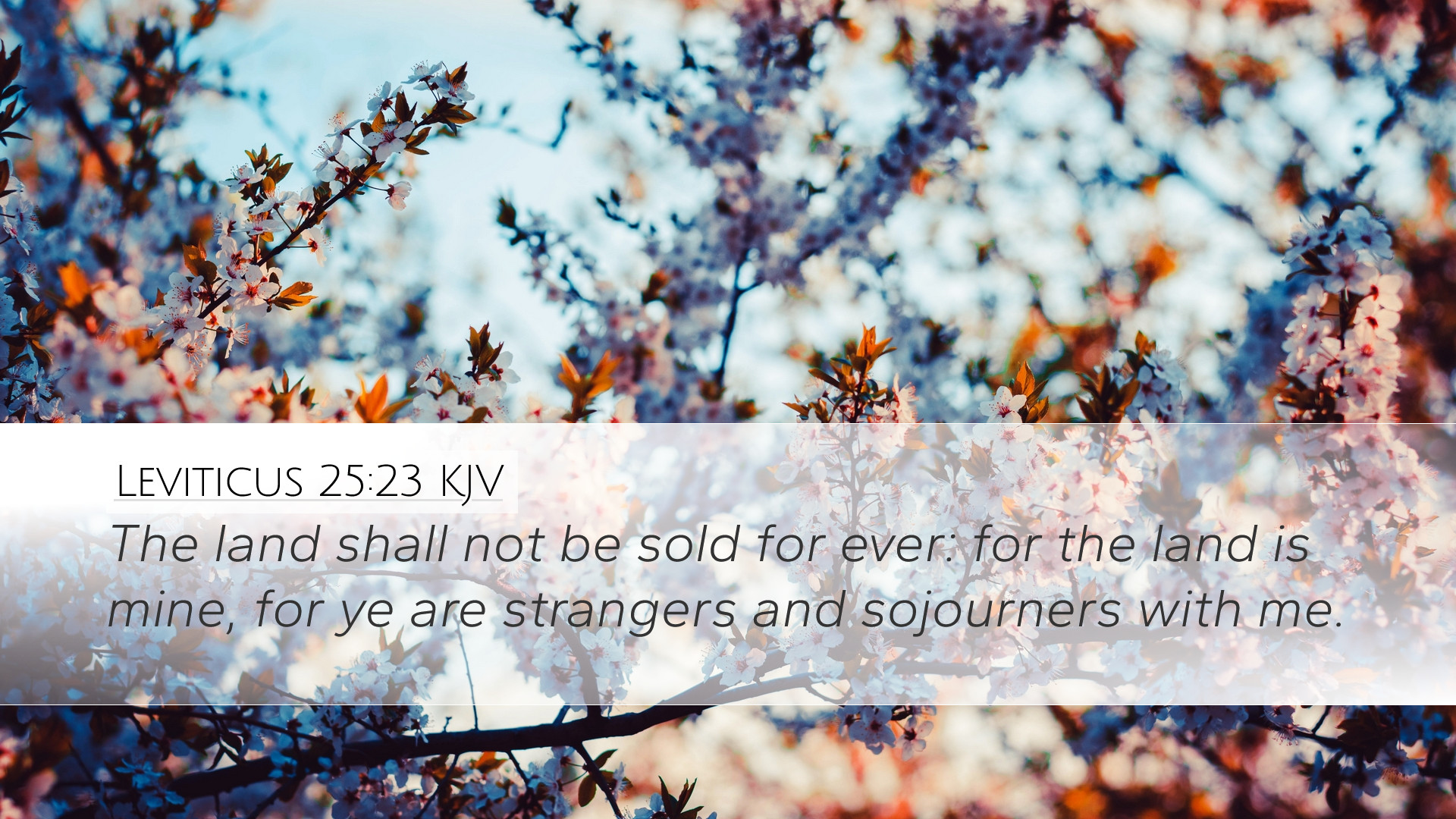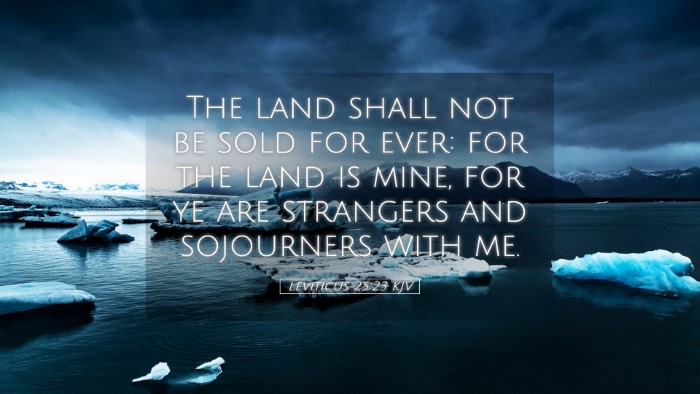Commentary on Leviticus 25:23
Leviticus 25:23 states, "The land shall not be sold forever; for the land is mine; for ye are strangers and sojourners with me." This verse is fundamental in understanding God's ownership of the land of Israel, the relationship between humanity and creation, and the principles of justice within the socio-economic structures of ancient Israel. Various public domain commentaries provide profound insights into this text, facilitating a richer understanding for pastors, students, and theologians.
Ownership and Divine Sovereignty
Matthew Henry emphasizes the idea that God is the ultimate owner of all creation, stating, "The land is mine." This proclamation is significant as it underscores God's sovereignty over the earth. All lands, properties, and possessions belong to Him. This acknowledgment is foundational for understanding not only this passage but also the broader biblical theme of stewardship.
Albert Barnes further elaborates on this divine ownership by highlighting the concept of strangers and sojourners. He notes that Israel, in their possession of the land, must recognize that they are merely tenants and not permanent owners. This perspective fosters a sense of humility and dependence on God as it reminds them of their transient state and God's eternal nature.
Understanding the Year of Jubilee
This verse is situated within the broader context of the Year of Jubilee (Yovel), a significant event occurring every fifty years when debts were forgiven, and lands were returned to their original families. Adam Clarke explains that this system was instituted to prevent the accumulation of wealth in the hands of a few and to preserve the family structure in Israel. The reinstatement of land ownership in the Year of Jubilee symbolizes God's grace and mercy in maintaining social balance.
- Social Justice: The intentions behind the Jubilee system are deeply rooted in principles of social justice. Henry points out that God desires to ensure that no family becomes permanently impoverished or dispossessed of their ancestral land.
- Community Responsibility: Barnes notes the community aspect of the Jubilee, where the entire nation was responsible for ensuring that every family had an opportunity to thrive and participate in God's blessings.
- Restoration: Clarke emphasizes the theme of restoration within the Jubilee, where not only the land but also relationships and lives are restored, reflecting God's redemptive plan for His people.
Theological Implications of Strangers and Sojourners
Recognizing that they are strangers and sojourners also implies a call to compassion and justice towards those who are marginalized. Henry states that this perspective encourages the Israelites to treat others, including the resident aliens, with dignity and respect, aware that all humanity is under God's sovereignty.
Barnes further suggests that this awareness should inspire a communal ethic rooted in love and care for others, particularly those in need. In a modern context, this principle challenges believers to consider how they approach issues of land ownership, wealth distribution, and social justice, highlighting the need for ethical responsibility.
The Connection to Christ and the New Covenant
This passage also foreshadows the teachings of Christ concerning the kingdom of God, where the values of ownership are subverted. In Christ, believers understand that true wealth and permanence come from a relationship with Him, rather than worldly possessions. Clarke brings to light that Jesus redefined the understanding of inheritance, where those who follow Him are co-heirs in a spiritual Kingdom, transcending earthly possessions.
Practical Applications for Modern Readers
For pastors, students, and theologians, Leviticus 25:23 challenges contemporary notions of ownership and wealth. It calls for a reflection on the stewardship of resources, humility in prosperity, and the responsibility of community care.
- Stewardship: Understanding ownership in light of divine sovereignty should prompt serious considerations on how resources are used and shared.
- Social Responsibility: The implications of being sojourners compel believers to advocate for the marginalized, reflecting God's concern for social justice.
- Community Ethics: The collective responsibility established in the Year of Jubilee encourages individuals and churches to work toward creating equitable systems in society.
Conclusion
Leviticus 25:23 serves as a vital text for understanding not only biblical principles of land ownership and stewardship but also the broader implications for social justice and communal ethics. The insights from Matthew Henry, Albert Barnes, and Adam Clarke collectively enhance our understanding of the theological and practical dimensions of this verse, making it meaningful for contemporary faith and practice. As believers reflect on their role as stewards of God’s creation, they are reminded of their responsibility to uphold justice, compassion, and the values of the Kingdom of God.


